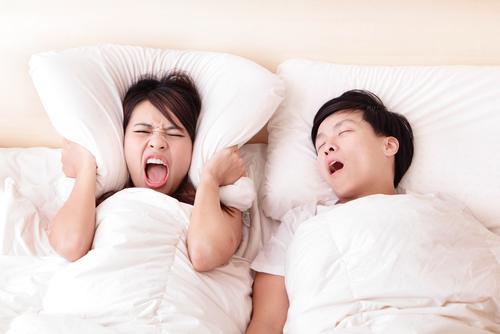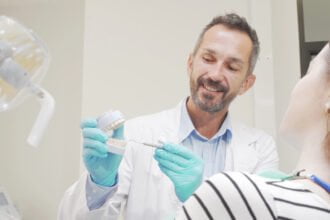
A well managed diabetic will have better outcomes over the long term to live a healthier life. Recent studies have shown a relationship between obstrucitve sleep apnea and diabetes control.

A well managed diabetic will have better outcomes over the long term to live a healthier life. Recent studies have shown a relationship between obstrucitve sleep apnea and diabetes control.
What Is Obstructive Sleep Apnea?
Obstructive sleep apnea affects almost 25% of the population and is a characterized by repeated stops and starts in breathing during sleep. The most common form of sleep apnea is obstructive sleep apnea (OSA) which occurs when your throat muscles intermittently relax. When relaxed they block your airway during sleep. The most obvious sign is snoring while sleeping. Obstructive sleep apnea most commonly affects middle-aged or older adult males, smokers, and people who are overweight or obese.
Obstructive sleep apnea treatment usually involves using an oral appliance to keep your airway open or using a mouthpiece to thrust your jaw forward during sleep.
Obstructive Sleep Apnea Risk Factors
-Age. As we age there is a muscular and neurological loss of muscle tone of the upper airway. This can also be caused by alcohol and sedative medications.
-Weight. The most typical individual with OSA syndrome suffers from obesity (particularly in the face and neck region). However, obesity is not always present with obstructive sleep apnea. In fact, a significant number of adults with normal body mass indices (BMIs) have decreased muscle tone causing airway collapse and sleep apnea. The cause of this is not well understood.
-Genetics. Those with a family history of Sleep Apnea are more likely to develop it themselves.
-Smoking. The chemical irritants in smoking tend to cause the soft tissue of the upper airway to become inflamed. This can result in a narrowing of the upper airway.
Diabetes and Sleep Apnea Link
The researchers at McGill University in Montreal, Canada found that treatment of sleep apnea led to significant improvements in glucose levels following an oral glucose challenge without affecting insulin secretion. This suggests an improvement in the sensitivity of insulin. The study followed 39 patients with sleep apnea and a prediabetes diagnosis. These 39 subjects were randomized to either recieve 2 weeks of continuous positive airway pressure (CPAP) or a placebo pill. All patients were tested for oral glucose tolerance prior to and after treatment. This gives researchers an idea of each subject’s ability to use glucose. Following the two week study, the researchers were able to conclude that sleep apnea treatment may lower the risk for prediabetic patients. They also recommend an assessment for sleep apnea for all patients with prediabetes.
Conclusion
While further research is needed this is an important landmark piece of research. Diabetes is a disease that can be avoided for many of us. If sleep apnea goes undiagnosed it may be contributing to the diabetic condition. If properly managed, it could keep a patient out of the danger zone of a full diabetes state. While no definitive link is reported in these studies it does show there is a correlation between sleep and how our body handles glucose.










